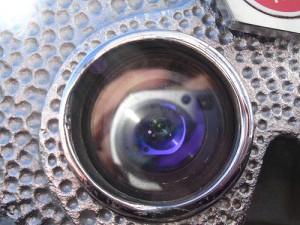Is Microsoft’s Kinect the New Trend in Advertiser Black Ops?
by Steve O'Keefe on November 16, 2010
 The chief operating officer for Microsoft’s Xbox division ignited a firestorm of controversy last week when he told a room full of digital entertainment investors about the capabilities of the Xbox’s revolutionary new motion controller, Kinect, to target advertising based on what built-in cameras see.
The chief operating officer for Microsoft’s Xbox division ignited a firestorm of controversy last week when he told a room full of digital entertainment investors about the capabilities of the Xbox’s revolutionary new motion controller, Kinect, to target advertising based on what built-in cameras see.
Kinect launched November 4 as a hands-free device for playing video games. Unlike other video game consoles, such as Wii and PlayStation, Kinect allows users to play Xbox games without having to hold a motion-detecting controller. Kinect senses your motions using multiple cameras and infrared detectors.
Dan Gallagher, technology editor for The Wall Street Journal‘s MarketWatch subsidiary, reported on Dennis Durkin’s remarks on the Journal‘s Digits blog last Thursday. Gallagher quotes Durkin as saying that Microsoft “can cater which content we present to you based on who you are.” The Journal, part of Rupert Murdoch’s News Corp, which owns Fox News among many other media assets, has become an unlikely privacy champion after the newspaper’s “What They Know” series last July blew the lid off privacy invasions by the Internet’s top websites.
Immediately after the unfavorable coverage in The Wall Street Journal, Microsoft issued a statement contradicting Durkin’s remarks. The statement, which strangely does not appear on Microsoft’s Xbox Press page, reads in part:
Xbox 360 and Xbox LIVE do not use any information captured by Kinect for advertising targeting purposes.
However, other websites have published more of Dennis Durkin’s remarks, and it appears unlikely that his remarks at the BMO Capital Markets Digital Entertainment Conference were a simple slip of the tongue.
Bill Levine at TopTechNews quotes the Xbox CEO as stating the controller can tell “how many people are in a room when an advertisement is shown,” and that it can use “face recognition and voice recognition” to determine such things as the gender of players, whether or not they are standing, and how excited they are.
Molly McHugh at the Digital Trends blog quotes Durkin as stating flatly that data gathered by the Xbox’s cameras can be used to customize ads. Microsoft can “be more targeted about what content choices we present; what advertising we present….”
The capabilities of the Xbox Kinect to spy on users and then use that information to customize ads is part of a growing technology trend. The screens we watch at home and at work are now watching us — and using that information to customize the content and the ads we see.
In September, two of The Wall Street Journal‘s correspondents in Japan, Daisuke Wakabayashi and Juro Osawa, reported on a futuristic vending machine in a train station there that uses cameras to determine the gender and age of people using the vending machine. The machine then recommends selections based on that information.
The vending machine, manufactured by NEC, records such things as which people looked at which items, who bought what, and how “engaged” they were with the display. According to the Journal‘s reporters:
The company said its system can identify people’s gender correctly about 90% of the time and guess a person’s age within a 10-year range about 70% of the time.
The Journal notes that there are few, if any, laws governing the collection, storage, and use of images and information gathered by such devices. The technology is expected to show up in retailers’ window displays soon. Those displays will change the merchandise being shown depending on who is looking at them.
These kinds of invasions of privacy were anticipated in the new book, MINITRENDS, by John & Carrie Vanston. The authors suggest that privacy protection will be one of the booming technology trends in the coming two-to-five years, and devote a significant portion of the book to describing opportunities for entrepreneurs in this rapidly evolving segment of the economy.
What do you think about store displays that watch you and record your image and actions as you shop? Do you think they should be allowed? Do you think they can be stopped? Do you see any technologies coming in the next two to five years that could protect people from these devices? We’re anxious to hear your comments on these matters.
STEVE O’KEEFE
News Editor, Minitrends Blog
Source: “Is Your Xbox Console Watching You?” The Wall Street Journal, 11/12/10
Source: “Big Brother Kinect Could Be Watching You at Home,” TopTechNews, 11/12/10
Source: “Kinect’s camera could record data for advertisers,” Digital Trends, 11/12/10
Source: “Billboards That Can See You,” The Wall Street Journal, 09/03/10
Image courtesy of quatro.sinko, used under its Creative Commons license.
Comments
One Response to “Is Microsoft’s Kinect the New Trend in Advertiser Black Ops?”
Got something to say?














How does the Kinect sense gender?…
According to the article here: http://minitrends.com/is-microsofts-kinect-the-new-trend-in-advertiser-black-ops/ > Bill Levine at TopTechNews quotes the Xbox CEO as stating the controller can tell “how many people are in a room when an advertisement is…